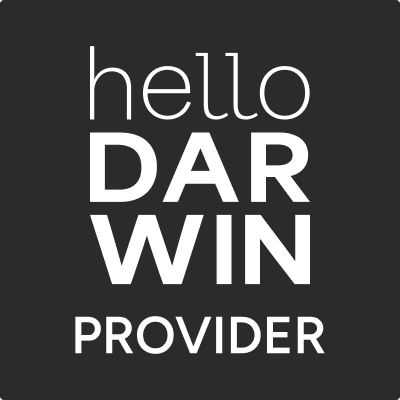Top Design Agencies in Winnipeg
Design agencies in Winnipeg create impactful visual identities. They integrate aesthetics and functionality for maximum impact.
Design agencies specialize in creating visually appealing and functional designs for businesses, organizations, and individuals. Their primary focus is to solve creative challenges through innovative visual solutions, often bridging the gap between brands and their target audiences.
What Do Design Agencies Do?
Design agencies offer a wide range of services to help businesses establish and maintain a compelling visual presence. They combine creativity, strategy, and technical expertise to produce impactful designs that resonate with audiences.
Key Services Offered by Design Agencies
Graphic Design: Branding, logo creation, and marketing materials.
Web Design: Custom website layouts, user experience (UX), and user interface (UI) designs.
Digital Marketing Design: Social media graphics, email templates, and digital ads.
Product Design: Packaging and product interface designs.
Motion Graphics and Video: Animations, explainer videos, and visual effects.
Importance of Localized Expertise in Winnipeg
Hiring a design agency with localized expertise in Winnipeg can provide significant advantages. These agencies understand the nuances of the local market, cultural preferences, and industry trends. Their insights can help craft designs that resonate more effectively with the local audience, leading to better engagement and results.
How We Ranked the Best Design Agencies
Criteria Used for Evaluation:
Portfolio Quality: We assessed the creativity, originality, and impact of the agencies' past projects.
Client Reviews: Customer testimonials and feedback were crucial in evaluating overall satisfaction.
Industry Experience: Years of experience and specialization in specific niches were taken into account.
Local Market Understanding in Winnipeg: Agencies with a deep understanding of the local market dynamics were given preference.
Methodology for Selecting Top Agencies
Our team conducted thorough research by analyzing online reviews, comparing portfolios, and interviewing past clients to curate a list of the most reliable and talented design agencies in Winnipeg.
Benefits of Hiring a Design Agency in Winnipeg
How Design Agencies Can Help Businesses Grow
Brand Recognition: A professional design agency can establish a consistent and memorable visual identity.
Improved User Experience: Their expertise in UX/UI ensures better customer satisfaction and engagement.
Increased Conversions: Well-designed marketing materials and websites drive conversions and revenue growth.
Specific Benefits Tailored to the Winnipeg Area or Market
Localized Designs: Agencies in Winnipeg create visuals that reflect the preferences and culture of the area.
Market-Specific Strategies: Their local knowledge helps in crafting designs that cater to the unique demands of the Winnipeg market.
Tips for Choosing the Right Design Agency
Factors to Consider:
Budget: Ensure the agency fits your financial constraints without compromising quality.
Niche Expertise: Look for agencies specializing in your industry or desired design style.
Communication Style: Choose a team that aligns with your workflow and understands your vision.
Questions to Ask During Consultations:
What is your experience in our industry?
Can you share case studies or client success stories?
How do you incorporate feedback into your process?
What is your timeline for project completion?
Importance of Alignment with Your Brand’s Goals
Choosing a design agency that aligns with your brand values and objectives is crucial. Their understanding of your mission will result in designs that effectively communicate your message and engage your target audience.

Vanda Web
We craft your digital needs

BRD Agency

Desjarlais-Smith Communications Inc.
Frequently asked questions about Design Agencies in Winnipeg
What Are the Main Services Offered by a Design Agency in Winnipeg?
- Branding and Visual Identity: Creation of logos, color palettes, typography, and style guides to strengthen brand image.
- Graphic Design: Production of visual supports such as brochures, posters, business cards, and other printed materials.
- Web Design: Design and development of attractive and functional websites optimized for an optimal user experience.
- Packaging Design: Creation of innovative and aesthetic packaging to capture consumer attention.
- Illustration: Production of custom illustrations for various communication supports.
- Advertising Design: Design of advertisements for online and offline campaigns, including banners, ads, and commercials.
- Signage and Display: Creation of signage and display supports for events, stores, and public spaces.
- Content Strategy: Development of visual and textual content consistent with the brand's identity for websites, blogs, and social media.
- UX/UI Design: Design of user interfaces (UI) and user experiences (UX) for applications and software.
- Editing and Layout: Design of layouts for magazines, books, catalogs, and other publications.
How to Define the Creative Direction of a Design Project?
What is the Importance of Visual Identity in a Company's Marketing?
What Criteria Should Be Considered When Choosing a Design Agency in Winnipeg for a Project?
- Portfolio: Examine the agency's previous work. Ensure their style and quality of work match what you are looking for. A varied and well-stocked portfolio can demonstrate the agency's ability to adapt to different types of projects.
- Experience and Expertise: Consider the agency's experience in your industry. An agency that has worked with similar businesses will better understand your specific needs and offer tailored solutions.
- Reputation and References: Check reviews and testimonials from previous clients. Request references and contact them to get feedback on their experience with the agency. A good reputation is often a reliable indicator of the agency's work quality and professionalism.
- Team Skills: Ensure the agency has a team of qualified and experienced professionals, including designers, art directors, web developers, and other specialists necessary for your project.
- Work Process: Inquire about the agency's work process. How do they manage projects, what are their communication and collaboration methods, and how do they ensure deadlines and budgets are met?
- Creative Approach: Discuss the agency's creative approach. Can they understand your vision and goals? Do they offer innovative and original solutions that can help you stand out?
What Are the Current Trends in Web Design?
- Minimalist Design: Simplicity remains a safe bet with clean layouts, lots of white space, and minimal graphic elements. This allows for a focus on content and improved user experience.
- Micro-interactions: Small animations and subtle interactions help engage users and make navigation more intuitive. For example, animations when hovering over buttons or smooth page transitions.
- Dark Mode: More and more sites offer a dark mode version. This mode is not only aesthetically pleasing but can also reduce eye strain and save energy on OLED screens.
- Bold Typography: Using large and bold typography captures attention and conveys key messages effectively. Custom fonts are also becoming more common to reinforce brand identity.
- Custom Illustrations: Unique illustrations and hand-drawn graphics add a human and distinctive touch to websites. They help tell stories and create an emotional connection with users.
How Can a Design Agency in Winnipeg Help Its Clients Improve Their Brand Image?
- Creating a Strong Visual Identity: A design agency can create or redefine a company's visual identity, including designing logos, selecting colors, typography, and cohesive visual styles that reflect the brand's values and personality.
- Developing Marketing Supports: The agency can design a full range of marketing supports such as brochures, business cards, posters, and presentations. These elements help convey a professional and cohesive image.
- Website Design: A well-designed website is essential for any business. The agency can create an attractive, functional, and responsive website that offers an optimal user experience and reinforces the brand's online presence.
- Branding Strategy: By developing an overall branding strategy, the agency can help define the company's mission, vision, values, and unique value proposition. This creates a solid foundation for all communication initiatives.
- Creating Visual Content: The agency can produce high-quality visual content such as videos, illustrations, and infographics that attract attention and engage the target audience. This content can be used on the website, social media, and other communication platforms.
What Are the Key Steps in a Website Redesign by a Design Agency in Winnipeg?
- Initial Analysis and Evaluation:
- Audit of the existing site: Examine the current state of the website, including performance, design, content, and user experience.
- Defining objectives: Identify the redesign goals, such as improving user experience, increasing conversions, or updating visual identity.
- Research and Planning:
- Competitor analysis: Study competitors' websites to identify best practices and improvement opportunities.
- User research: Gather information from current and potential users to understand their needs and expectations.
- Defining Strategy:
- Information architecture: Organize the site structure, define necessary sections and pages, and plan navigation.
- Wireframes and prototypes: Create wireframes to visualize page layouts and establish an interactive prototype to test functionalities and navigation.
- Visual Design:
- Visual identity: Update or create the site's visual identity, including colors, typography, and graphic styles.
- Page design: Design the different pages of the site respecting the wireframes and integrating defined visual elements.